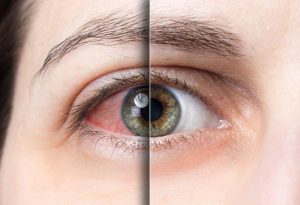You have been out with your family in a scorching sun, enjoying summer vacations with your loved ones.
Gradually, you start feeling tired, your mouth becomes dry, and you experience a constant headache. This might be due to dehydration on a hot day.
The key is to keep an eye on your symptoms, understand the impact of dehydration on your body and stay hydrated to prevent complications.
In this blog, you will come across a comprehensive guide to recognize the symptoms and the causes of dehydration early along with some steps you can take to prevent dehydration.
Common Signs of Dehydration That You Should Not Ignore
Some of the common signs and symptoms of dehydration are as follows:
- Extreme thirst
- Not peeing normally
- Yellow coloured urine
- Dizziness and fatigue
- Dry mouth
- Headache
- Low blood pressure
Some severe symptoms of dehydration that need medical intervention include:
- Fast pulse rate
- Dark, yellow urine
- Not being able to urinate
- Sunken eyes
- Feeling dizzy or nauseated
- Sleepiness or lack of energy
Whenever you notice any of these symptoms, don’t hesitate to seek medical guidance from a healthcare provider.
What Might Be the Cause Of Dehydration?
People often get confused when they think about the possible causes that they suffer from dehydration. Is it because of the scorching heat, or there are other reasons? Let’s have a look at some of the most common causes of dehydration:
1. Vomiting
It is one of the most common causes of dehydration, particularly when it’s persistent or severe. The more you vomit, the more you lose fluid and electrolytes from your body, so in this condition, the risk of dehydration increases.
2. Fever
When you have a fever, your body temperature regulation mechanism cools you down by sweating, and due to sweating, you lose significant amounts of water, especially if the fever is high or prolonged.
So fever usually comes with symptoms like loss of appetite and nausea, which can reduce the desire to drink fluid. Eventually, the body becomes dehydrated.
3. Excessive Sweating
Sweating significantly contributes to dehydration, especially in hot weather or during intense physical activity. So, it is important to increase your water or fluid intake if you spend hours outdoors.
4. Increased Urination
Increased urination is a significant cause of dehydration. When you urinate more than usual, your body loses more water.
In this condition, you can notice an imbalance in body fluid levels and your body loses more fluid than it takes and this condition causes dehydration.
Alarming Side Effects Of Dehydration
If dehydration is not treated properly, it can cause serious health complications in the body. Some of the common side effects of dehydration are as follows:
1. Heart Problems
When you are dehydrated, your blood volume decreases, making it difficult for your heart to pump blood throughout your body.
If you already have a heart problem, dehydration will worsen your condition. Therefore, staying hydrated is important for your heart function, and it also prevents cardiovascular diseases in the future.
2. Electrolyte Imbalance
Electrolytes are important minerals that play a major role in maintaining the balance between the fluids inside and outside of the cells.
Whenever you are dehydrated, you not only lose water but also electrolytes through sweating, urination, and vomiting.
The lack of electrolytes in your body can lead to symptoms like muscle cramps and weakness. That’s why it is important to maintain the required electrolytes when you are dehydrated.
3. Joint Pain
Water is important for our joints. When your daily water intake is low, your cartilage can dry out gradually. With less fluid, joints become stiff, which causes pain.
Drinking enough water keeps the joint lubricated and flexible, helps cushion the joint, and prevents pain.
4. Kidney Problem
Yes, kidney problems can be caused by dehydration. When your water intake is low, your kidneys receive less blood flow, making it difficult to filter waste from your blood effectively. As a result, people may suffer from kidney stones or urinary tract infections
Water helps remove waste from the blood through urine. That is why it is important to stay hydrated to maintain kidney health and prevent further complications.
5. Back Pain
Drinking a sufficient amount of water daily can prevent back pain, but dehydration can cause it by affecting the muscles and discs in your spine. It can make your muscles stiff, which can lead to back pain.
How Much Water Should You Drink Daily?
Generally, the recommended daily intake for men is 3.7 litres whereas women should drink 2.7 litres in a day.
On the contrary, the current recommendation for children to drink water is 8-ounce glasses daily. Children must drink water regularly throughout the day, especially during intense physical activity outdoors.
However, the fluid intake requirement for every person is different. Your daily water intake might depend on age, health condition and your body weight.
How Can I Prevent Dehydration?
You can prevent dehydration by tracking your daily water intake and eat foods that have higher water content such as fruits and vegetables.
Also, limit the amount of caffeine intake because it is a diuretic, which means that it increases urine production and causes fluid loss from the body.
Monitor your symptoms, and if you experience any symptoms of dehydration, such as thirst, dark urine, and fever, then do not hesitate to seek medical guidance from your healthcare provider.
When Should I See My Doctor?
Mild dehydration can be managed at home, but certain situations require medical attention. If you are experiencing symptoms like extreme thirst, fever, and diarrhea, you should go for a checkup.
If not taken seriously, dehydration can become a serious health problem. It gets worse on a daily basis, so do not hesitate to seek a medical checkup.
Personalized Care At Family Urgent Care For Dehydration
At Family Urgent Care, we begin with a comprehensive assessment to understand the causes of dehydration and consider factors like medical history, current condition, and symptoms to evaluate the severity of dehydration and suggest treatment accordingly.
Family Urgent Care provides telehealth services that connect patients with healthcare professionals and ensure quality healthcare from the comfort of your home.
Your health is our priority. So, don’t wait to get the best medical care services if you experience any concerning symptoms of dehydration. Family Urgent Care is here for you. Get personalized treatment, visit our website, and schedule your appointment now.


























